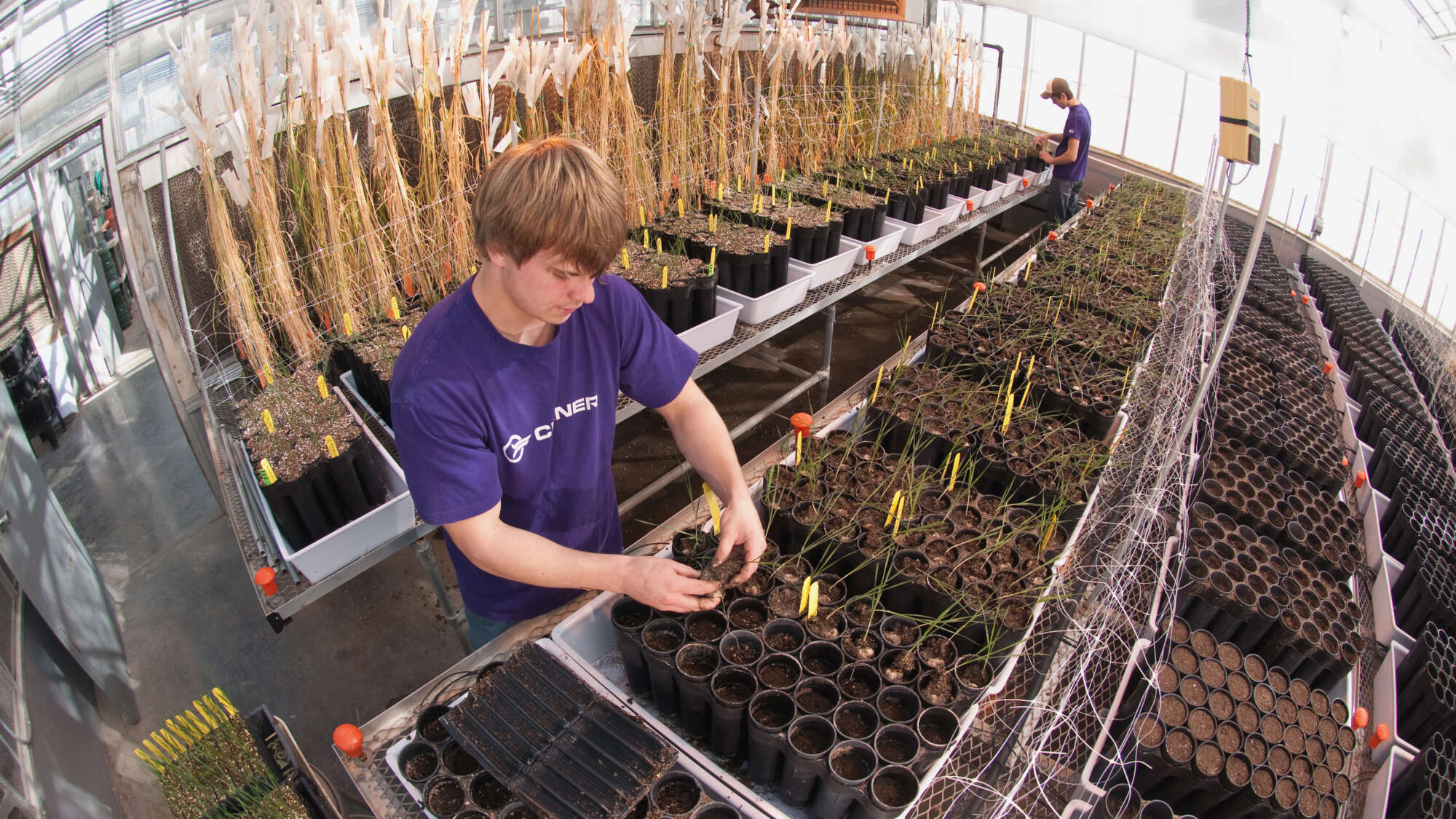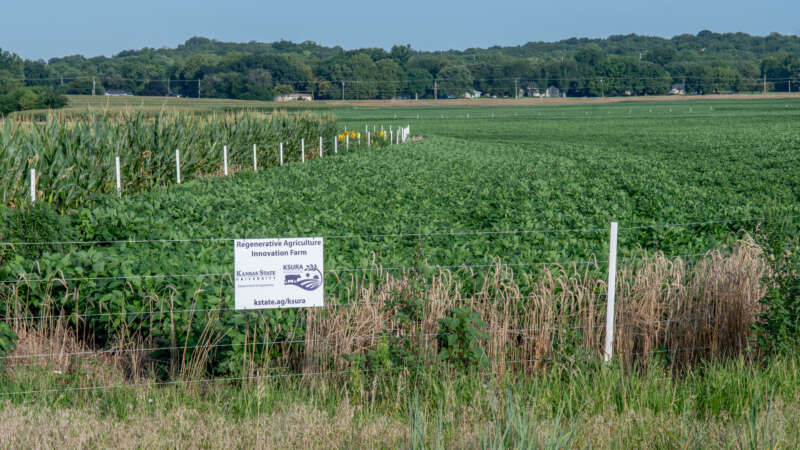An agronomy scholarship aptly memorializes the academic rigor and generosity of its namesake.
Farming and academics drove Brian Vining’s life. Now, more than 30 years after losing his battle with cancer, Vining’s legacy lives on in the 27 K-State students supported by the scholarship bearing his name.
As a student at Central Heights High School outside Richmond, Kansas, Vining served as president of the National Honor Society and local and district FFA chapters, earned his state FFA Farmer degree, graduated co-valedictorian and was named a State of Kansas Scholar.
Vining continued his success at Kansas State University, where he earned his undergraduate degree in 1984 and his master’s in 1989, both in agronomy. He served as president of the Wheat State Agronomy Club and vice president of Ag Council. He was also a member of Alpha Zeta and Phi Kappa Phi honorariums. He went on to work for Garst Seed Company, which later became ICI Seeds, helping farmers earn the best yields possible in his role as a certified professional agronomist.
In 1995, Vining’s family, led by his parents Pat and the late Gene Vining, established the scholarship to support students who participate in the agronomy club.
Carrying on the legacy
As the most recent recipient of the Brian E. Vining Agronomy Scholarship, Faith Winkelmann carries on Vining’s work helping farmers.
Winkelmann, a 2025 graduate in agronomy, works as an ag advisor for Frontier Cooperative in Genoa, Nebraska, near her hometown. And she’s working toward becoming a certified professional agronomist.
“My whole purpose as an agronomist is to be there for the farmer and answer their questions,” Winkelmann said.
As an out-of-state student, the Vining scholarship was a big stress reliever.
“I was involved with the agronomy club and on the K-State crop judging team, so having scholarships really helps you focus a bit more on those activities,” Winkelmann said. “I thank the Vinings for the support. It really means a lot to us as students to have the support of people in the industry and have them contribute to our success and growth as young adults.”
Recognizing potential
Scholarships invest in the success of students, but they also support the university’s ability to recruit and retain talented Wildcats.
“Many students would not be able to attend K-State without scholarships,” said Nathan Nelson, professor and graduate program director for the Department of Agronomy. “Notably, the Vining scholarship is awarded to students who are active in the Wheat State Agronomy Club. It enhances student learning by enabling and encouraging students to participate in valuable leadership and career development opportunities provided by the club.”
Nelson also points out that beyond financial support, scholarships also serve as recognition of a student’s hard work and potential.
“This kind of affirmation can significantly boost student confidence and motivation as they pursue their education and careers in agronomy,” he said.
Twenty-seven students have received the Vining scholarship, carrying on Brian’s legacy of academic excellence, industry expertise and above all, helping farmers.




